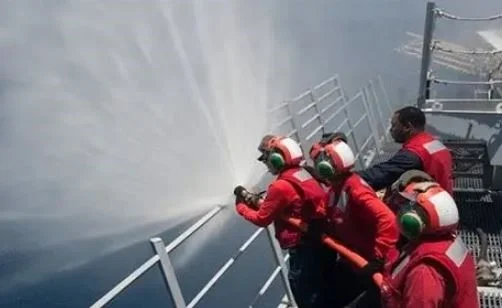Emergency muster drills are not just a formality. They are serious business. Every time the alarm rings whether it’s for fire, abandon ship, or man overboard the entire crew, including cadets, must report and respond correctly.
As a cadet, you may not have a major role yet, but how you behave during drills shows your discipline, awareness, and attitude.
Here’s what you should understand and focus on:
- Take Every Drill Seriously
Don’t ever think: “I’m just a cadet, this is not my job.”
Onboard, there’s no such thing as a small role during emergencies.
> Cadet Tip: Treat every drill like the real thing. Someday it might be.
- Know Your Muster Station
Check the muster list posted in common areas like the bridge, accommodation alleyways, and mess rooms.
Find your name and assigned duty
Note your muster station (fire station, lifeboat, bridge, etc.)
Know who your team leader is
> Cadet Tip: Ask your duty officer if you’re unsure of your role. Don’t guess.
- PPE First, Then Report
When the emergency alarm sounds (usually 7 short + 1 long blast), immediately:
Stop all work
Wear safety shoes, boiler suit, helmet, gloves
Carry your lifejacket and immersion suit (if needed)
Report to your muster station quickly and calmly
> Cadet Tip: Don’t run. Don’t shout. Don’t block passageways.
- Observe Fire Drills Actively
If assigned to fire party, watch how:
Fire suits and SCBA are donned
Boundary cooling is done
Communication happens with bridge
Hoses are laid out and tested
> Cadet Tip: Stand behind the team and observe silently. Later, help pack the gear properly.
- During Abandon Ship Drill
Pay close attention to:
Lifeboat boarding order
Use of lifejackets and immersion suits
How the lifeboat engine is started and lowered
How crew is accounted for
> Cadet Tip: Learn to secure yourself with the lifeline. Help others if permitted.
- After the Drill – Reflect & Record
Once the drill is over:
Assist in cleaning and restoring gear
Ask questions to your senior officer (at the right time)
Make a note in your Training Record Book (TRB):
> “Participated in abandon ship drill on 14 July 2025. Learned procedure for lifejacket use, lifeboat lowering and muster reporting.”
Final Words from the Master
A good cadet is not the one who talks a lot. It’s the one who watches quietly, learns quickly, and never waits to be told twice.
Emergency drills are your rehearsal for the real thing.
Make sure that when the real moment comes, you’re not confused, but confident


